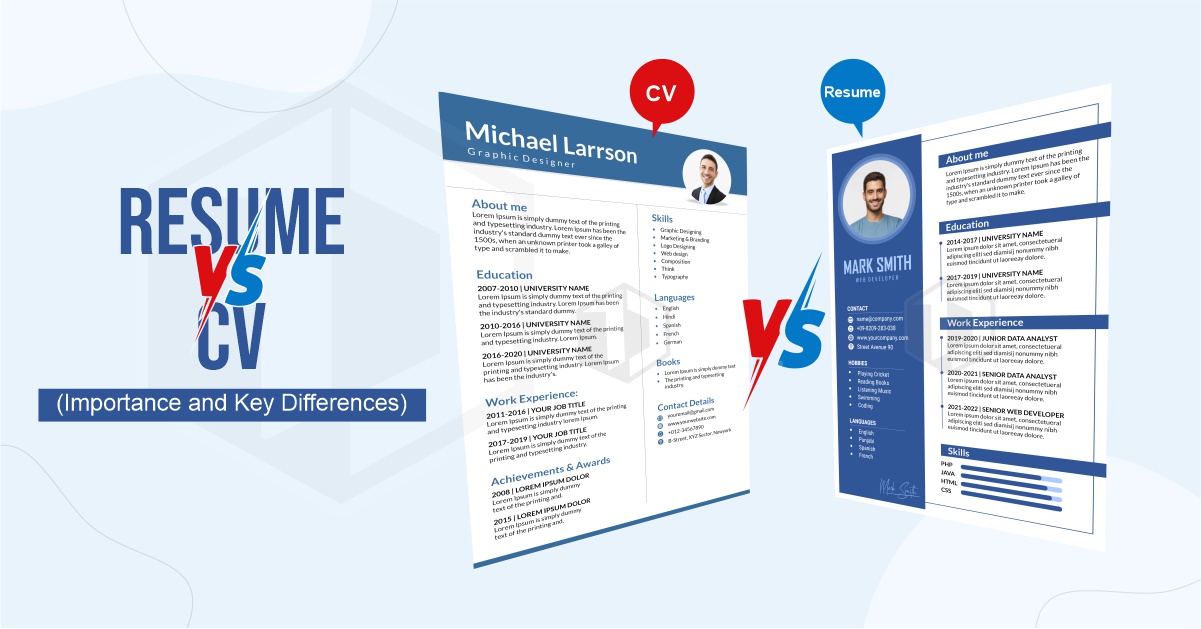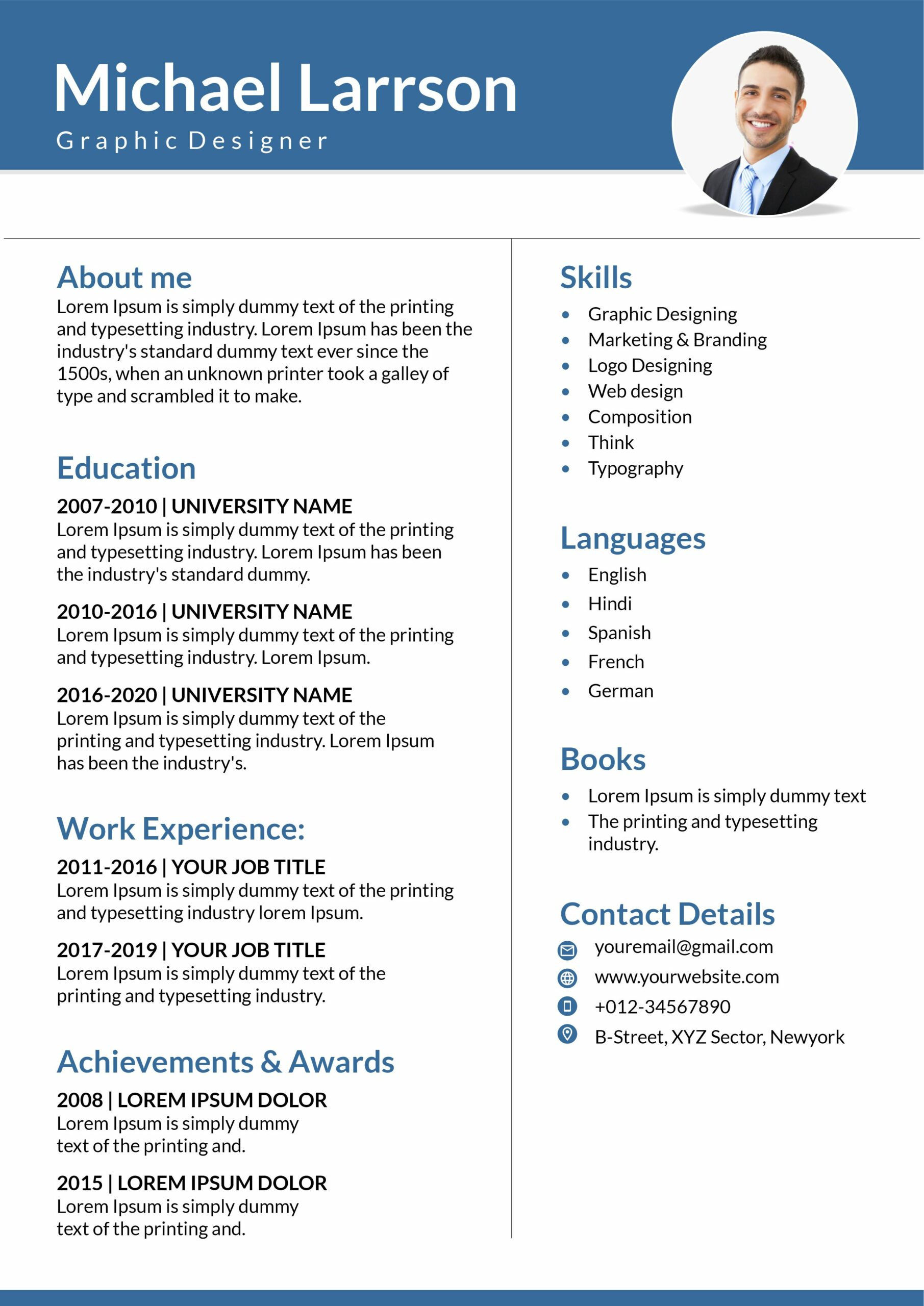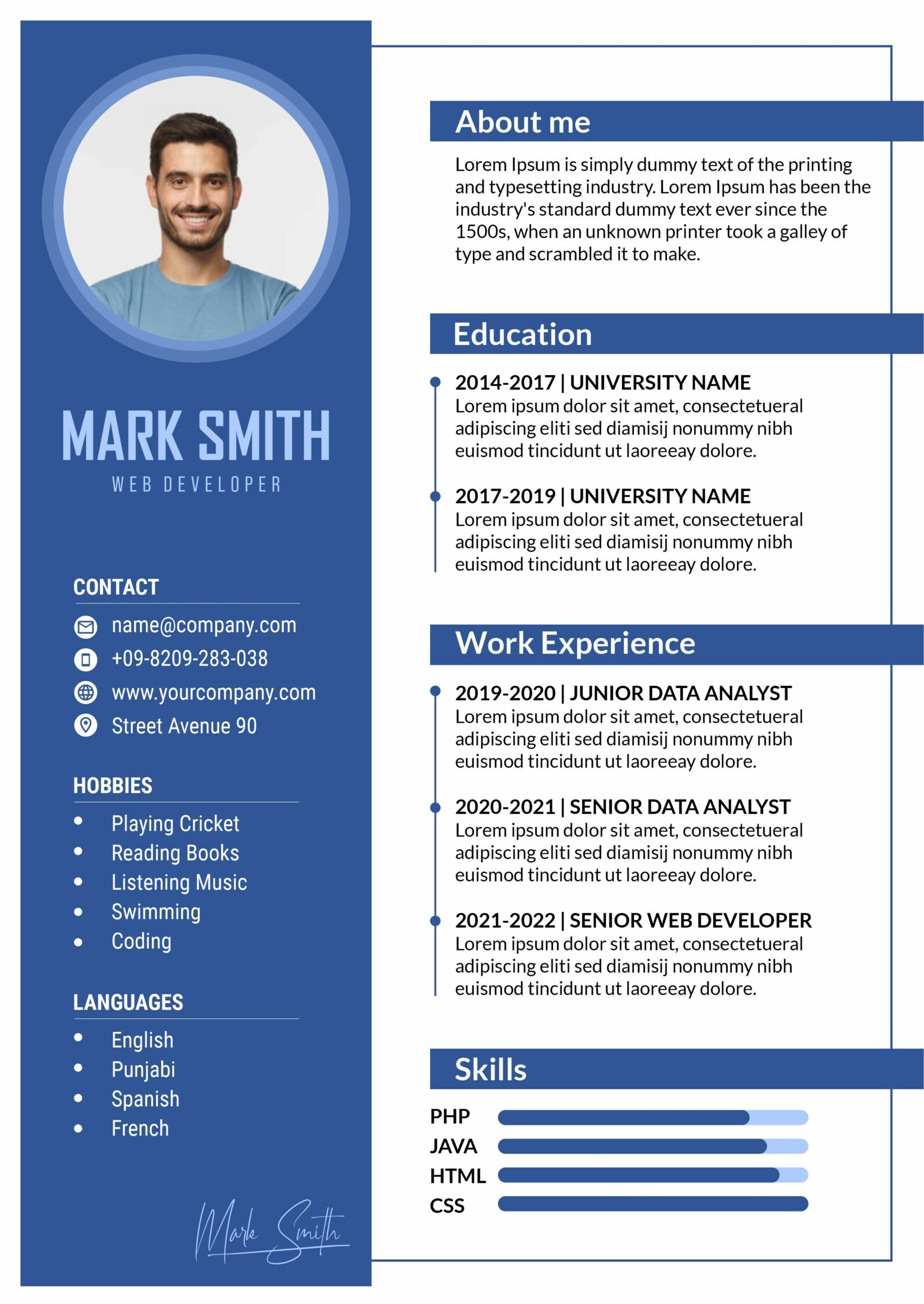
Differences Between Resume and CV – Importance and Key Differences
The buzz between Resume vs CV is from decades. What makes a CV different than a Resume? Why do some candidates apply for a job using a CV, while some apply with a Resume? In the next 4-5 minutes, I will clear all your doubts about the CV and Resume in this article.
Difference between CV and Resume:
- The resume is usually one to two pages long that involves your educational qualifications, experience, key skills & expertise, whereas the CV involves a detailed description of the candidate of his entire course of a career. It is a longer document than a Resume and has no longer limits.
- A resume is applied to get a job, on the other hand, a CV is particularly applied for academic purposes.
Still confused? Don’t worry, see the detailed description below:
1. CV:
A CV stands for ‘Curriculum Vitae’. It is a Latin word that means ‘Course of one’s life.’ It is a detailed document that illustrates the whole course of the career of an individual step by step in-depth. The document can be 2 to 10+ pages long. CV typically has no limits.
A CV is a comprehensive description of your educational qualifications, professional experience, awards, recognition, achievements, publications, etc.
You need to update your CV whenever you have achieved something new. In some countries, a CV is only used applying for Academic and Research Jobs. Let me show you a sample of what a Curriculum Vitae looks like:

Now you must have known, CV is an in-depth detailed document containing the course of your entire life. This is the reason it is a longer document.
Here is the List of Important Sections that you can lay down in a CV:
- Educational Qualifications
- Professional and Teaching Experience
- Contact info
- Research Experience in Detail
- Publications
- Awards and Recognition
- Seminars and Conferences
- Books
- Teaching Experience
- Other activities
- Skills and Expertise
- References
2. Resume:
A resume is a short, straight to the point, and concise document used for sending a job application to a company or agency. Try to keep your resume as short as possible. Typically 1 page or 2-page max. A resume contains only those skills that are relevant to the job position you are applying for.
A good resume highlights the skills, talent, and experience you have, and how you are different from others. Like a CV, it is important to regularly update your resume as well.
The objective of the resume is to provide the recruiter with a short description of the candidate that involves educational qualifications, experience (if any), and key skills. It is usually 1-2 pages long.
The below image is an example of a Resume:

Here is the List of Important Sections that you can lay down in a Resume:
- Contact info
- Educational qualifications
- Job Objective
- Experience
- Hobbies and interests
- Strengths and weaknesses
The Main Difference in a Nutshell:
The 3 main differences between a Resume and a CV lie in:
- Length
- Detail
- Purpose
I hope the difference and doubts between a CV and a Resume must have been cleared. If it doesn’t then leave a comment below and I’ll answer all your question regarding this.
If you are looking for a job or job-change, we are hiring at techdost for various roles. Kindly visit this page: Career at TechDost